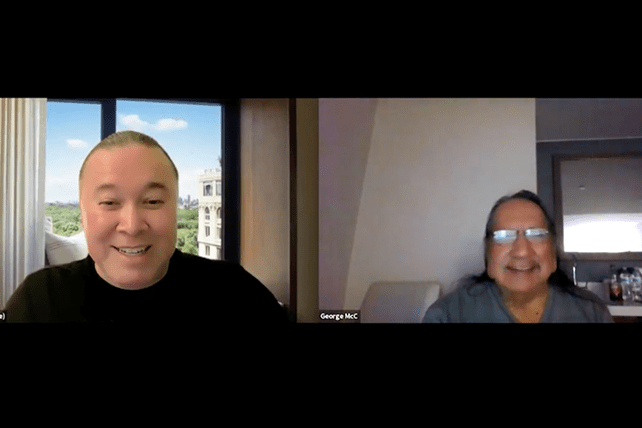“I think it’s important for members of the ELCA to know more about boarding schools generally in hopes that they might then be convicted to teach other people about Indian boarding schools — maybe their congregations,” said Vance Blackfox, the ELCA’s director for Indigenous ministries and tribal relations.
“Hearing a story from a survivor makes the story for us even more human and real and important.”
About 60 people attended the online conversation with McCauley, which Blackfox moderated.
McCauley told participants that his experience attending high school at Flandreau was “not bad” compared with many Indigenous people’s experiences of abuse at boarding schools. Every survivor he’s talked to has had a different experience.
But “not bad” still meant marching every day during gym class and making his bed every morning with military precision. The federal boarding school system, after all, was modeled after the Carlisle Indian Industrial School in Pennsylvania, which was founded in 1879 by Lt. Richard Henry Pratt with the motto “Kill the Indian, save the man,” McCauley said.
It still meant cutting his hair, which traditionally is worn long. He hasn’t cut his hair since he graduated, he said.
It meant separation from his family and culture, and what McCauley called “educational neglect.”
“I don’t know why they had us go to school because they weren’t there to try to get us into college. They weren’t trying to get us to be educated,” he said.
Churches can do more to find records of boarding schools and the remains of Indigenous children who may be buried on their grounds, McCauley said. He urged those who attended last week’s webinar to educate their congregations about the boarding school system.
“I think it’s a very important thing that we talk about it so the healing can begin of what happened, and the way to begin with that is hearing the truth. The truth can’t be changed, the truth can’t be denied, and it can’t be ignored,” he said.
“So I’m thankful and grateful that you’re all here to listen, and I know that good things can come from this.”
This article originally appeared here.

